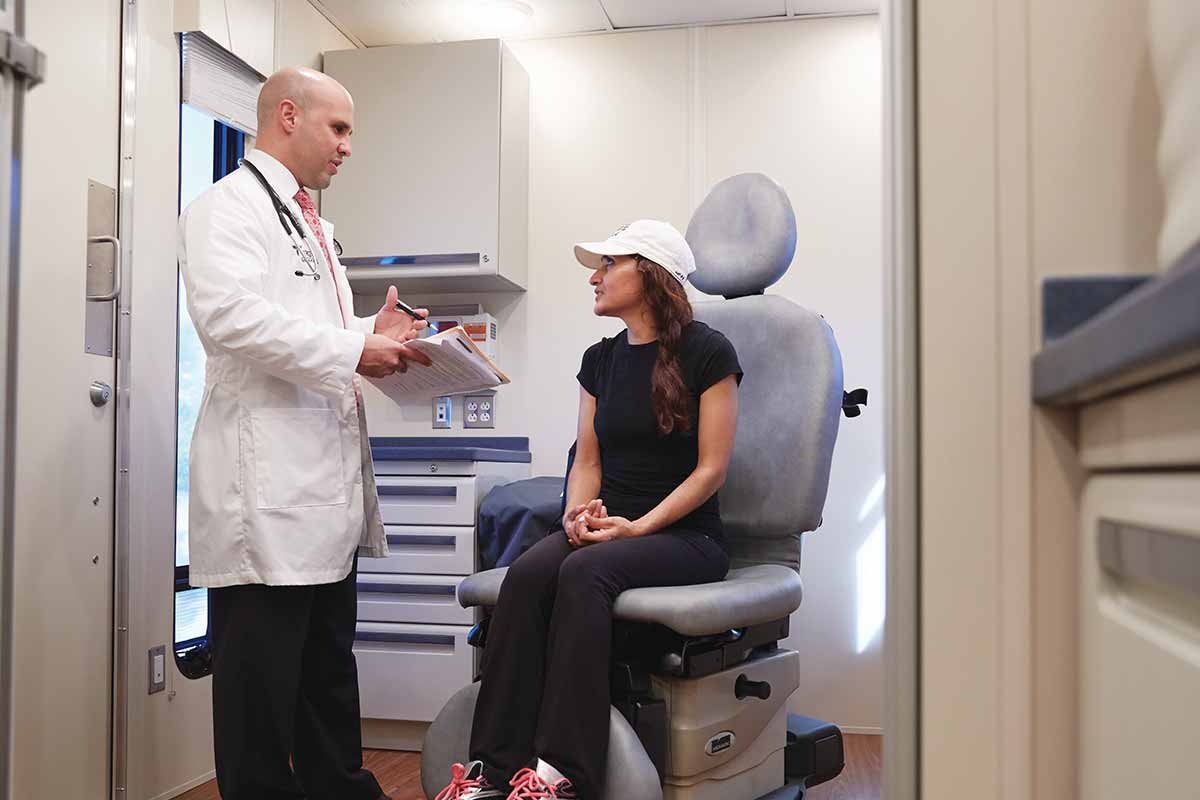How freestanding medical clinics may save you time and money

Need an urgent care facility? It’s just 2 doors down from your local nail salon. Lab work? You can get that at your closest shopping center. Flu shots? Aisle 7, across over-the-counter medications.
When you look around your community, you may likely see plenty of freestanding health clinics — and they may make caring for your health easier and more affordable. After all, it makes sense to look for services you need at the places you already visit and are in network, instead of trekking to the hospital.
It pays to get to know the clinics around you within your health insurance network. “In many cases, getting care from a freestanding network facility or provider office instead of a hospital or hospital-affiliated facility can save you money,” says Matthew Vesledahl, senior vice president of UnitedHealthcare Networks. “Members can visit our mobile app to comparison shop for more than 820 common medical services based on quality and cost, with estimates based on actual contracted rates with care providers and facilities.”
What’s a freestanding facility?
Freestanding (or stand-alone) facilities provide medical services under the direction of a physician, but they’re not part of a hospital. Suppose you come down with nasty flu symptoms, or you get a cut that looks like it needs stitches, and it’s a Wednesday night or a Saturday afternoon, when your doctor’s office is closed. One option is the emergency room (ER). But a typical ER visit has an average cost of $2,600,1 not to mention wait times that may last hours depending on the volume and severity of other cases being treated there. (A Harvard Business Review article notes the average wait time in the ER is 90 minutes to be seen and another 2-plus hours until discharge).2 On the other hand, a quick trip to your local freestanding urgent care center costs an average of $185.1 Plus, you could be in and out in 30 minutes or so. Some urgent care centers may let you schedule appointments or check in ahead of time to minimize your wait.
More ways to save time and money when you need healthcare
Stand-alone urgent care centers are just one of the options that may save you time and money.
Stand-alone imaging centers
Stand-alone imaging centers perform diagnostic tests like magnetic resonance imaging (MRI), X-rays, PET scans and CT scans. As long as the facility is accredited (you can check that using the American College of Radiology facility search), the MRI and CT scan equipment will likely be the same brand and quality technology as in a hospital, and the technologist will have the same level of training and certifications. That helps ensure you’re getting the same quality you would at a hospital — without the time and hassle of driving to and navigating a large hospital complex.
Ambulatory surgical centers
Ambulatory surgical centers provide common surgical procedures like cataract removals and joint replacements. Walk in, have your surgery, and check out. “An ambulatory surgical center is set up to get you home safely the same day,” says Bryce Johnson, M.D., an orthopedic surgeon and president of OrthoWest in Orange County, California. “You’re getting a procedure that’s just as good as — or better than — at the hospital. The operating room looks the same, and the teams are trained in the same way.”
Independent, freestanding labs
Independent, freestanding labs perform diagnostic and/or clinical tests outside a hospital or a doctor’s office. Need a urinalysis to check for a UTI? Want to track your blood sugars to make sure your diabetes is under control? You can skip the hospital lab and head instead to a nearby independent lab. Certified technicians licensed by the state perform the same professional work that’s done in hospital labs.
When you visit an accredited freestanding medical facility, you may see a doctor whose training and licensing would be the same as that of a hospital doctor in your state. You might also be treated by a physician assistant or a nurse practitioner — they may be able to diagnose your issue or recommend treatment, including prescribing medications, depending on your state’s regulations (each state’s nursing board determines the scope of care nurses can provide).
So before you assume that a big medical center is your best choice for care, talk about your options with your doctor or insurance provider, and research the options nearest you.
More articles
More articles
Shopping for a plan?
Find what you’re looking for, from individual plans to Medicare and more. Learn about your options and get online quotes.